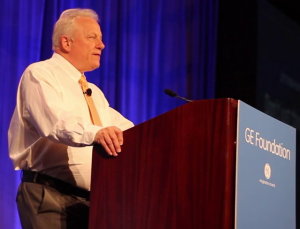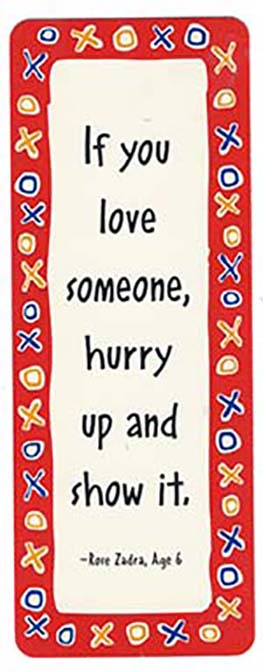If your ideas are worth having, they are worth recording.

Every day hundreds of hunches, intuitions, inklings, premonitions and fleeting ideas fly thru your consciousness. Some hold the seeds of pure brilliance. Write them down. Use a pencil, or a sharpie, or a white board or a laptop, or the back of your business card, but don’t let them get away—write them down.
If you do, you’ll be in great company. Einstein, Agatha Christie, Lewis Carol, John Lennon, Leonardo Da Vinci, Steve Jobs—so many gifted thinkers, inventors, artists and product developers have all been avid note-takers, doodlers or journalers.
Note-taking and doodling are both forms of visual thinking. The simple act of drawing spontaneous, free-flowing shapes, squiggles and words jump-starts the right side of your brain, sparking creativity and unlocking the door to new possibilities. Continue reading
 I am on my way today to spend some time at Seattle Children’s Hospital, a place where beautiful baldheaded children sing Christmas carols, and random miracles seem to happen almost every day. I am bringing gifts for the angels: the Doctors, nurses and caregivers who care for these brave little kids, and who fill the hospital corridors with spirit, hope and courage all year long.
I am on my way today to spend some time at Seattle Children’s Hospital, a place where beautiful baldheaded children sing Christmas carols, and random miracles seem to happen almost every day. I am bringing gifts for the angels: the Doctors, nurses and caregivers who care for these brave little kids, and who fill the hospital corridors with spirit, hope and courage all year long. One of Oprah’s “Behind the Scenes” videos shows her rising at her customary time of 5:55 a.m. The morning sun is just peeking over the horizon.
One of Oprah’s “Behind the Scenes” videos shows her rising at her customary time of 5:55 a.m. The morning sun is just peeking over the horizon. A Zen story tells of a prosperous man who awoke on his birthday with a mission in mind. With tears in his eyes and love in his heart he informed his wife: “I must travel back down the road of life to thank those who have helped me along the way.”
A Zen story tells of a prosperous man who awoke on his birthday with a mission in mind. With tears in his eyes and love in his heart he informed his wife: “I must travel back down the road of life to thank those who have helped me along the way.” I didn’t write that headline, Mark Twain did. Twain knew a lot about human nature; and he pulled no punches when he wrote about the stubborn way most people cling to old ideas and the comfort of the status-quo.
I didn’t write that headline, Mark Twain did. Twain knew a lot about human nature; and he pulled no punches when he wrote about the stubborn way most people cling to old ideas and the comfort of the status-quo. Twenty three years ago I was sitting at my kitchen table, hard at work. I was compiling a book of quotations from some of the world’s most inspiring women. Rosie, my six-year-old daughter, was sitting quietly on the other side of the table, scribbling with crayons.
Twenty three years ago I was sitting at my kitchen table, hard at work. I was compiling a book of quotations from some of the world’s most inspiring women. Rosie, my six-year-old daughter, was sitting quietly on the other side of the table, scribbling with crayons.